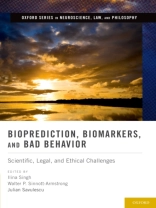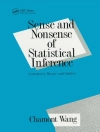Many decisions in the legal system and elsewhere depend on predictions of bad behaviors, including crimes and mental illnesses. Some scientists have suggested recently that these predictions can become more accurate and useful if they are based in part on biological information, such as brain structure and function, genes, and hormones. The prospect of such bioprediction, however, raises serious concerns about errors and injustice. Can biological information significantly increase the accuracy of predictions of bad behavior? Will innocent or harmless people be mistakenly treated as if they were guilty or dangerous? Is it fair to keep people in prisons or mental institutions longer because of their biology? Will these new instruments of bioprediction be abused in practice within current institutions? Is bioprediction worth the cost? Do we want our government to use biology in this way? All of these scientific, legal, and ethical questions are discussed in this volume. The contributors are prominent neuroscientists, psychologists, sociologists, philosophers, ethicists, and legal scholars. This volume will interest everyone with hopes that bioprediction will solve problems or fears that bioprediction will be applied unjustly.
Julian Savulecu & Ilina Singh
Bioprediction, Biomarkers, and Bad Behavior [PDF ebook]
Scientific, Legal, and Ethical Challenges
Bioprediction, Biomarkers, and Bad Behavior [PDF ebook]
Scientific, Legal, and Ethical Challenges
Mua cuốn sách điện tử này và nhận thêm 1 cuốn MIỄN PHÍ!
Ngôn ngữ Anh ● định dạng PDF ● ISBN 9780199844197 ● Biên tập viên Julian Savulecu & Ilina Singh ● Nhà xuất bản Oxford University Press ● Được phát hành 2013 ● Có thể tải xuống 6 lần ● Tiền tệ EUR ● TÔI 2945975 ● Sao chép bảo vệ Adobe DRM
Yêu cầu trình đọc ebook có khả năng DRM












